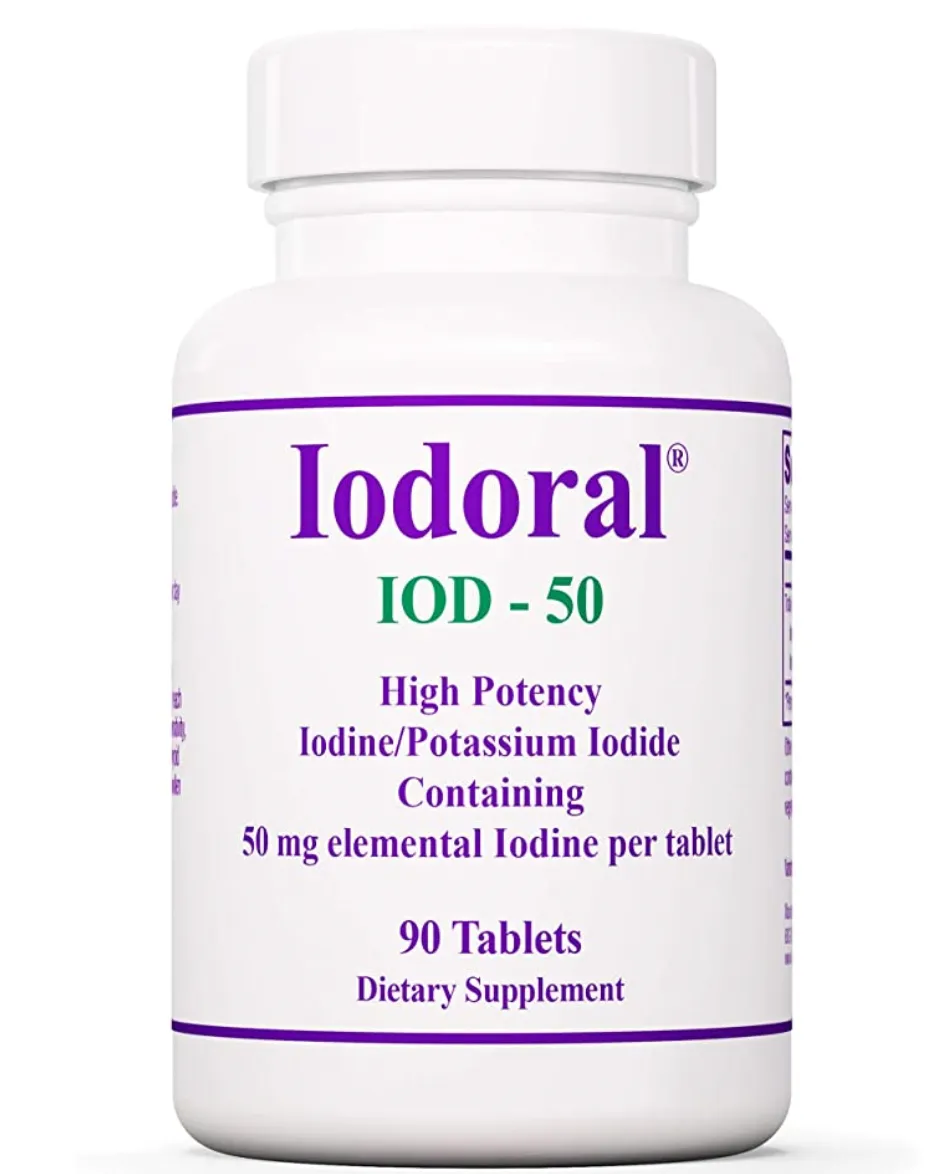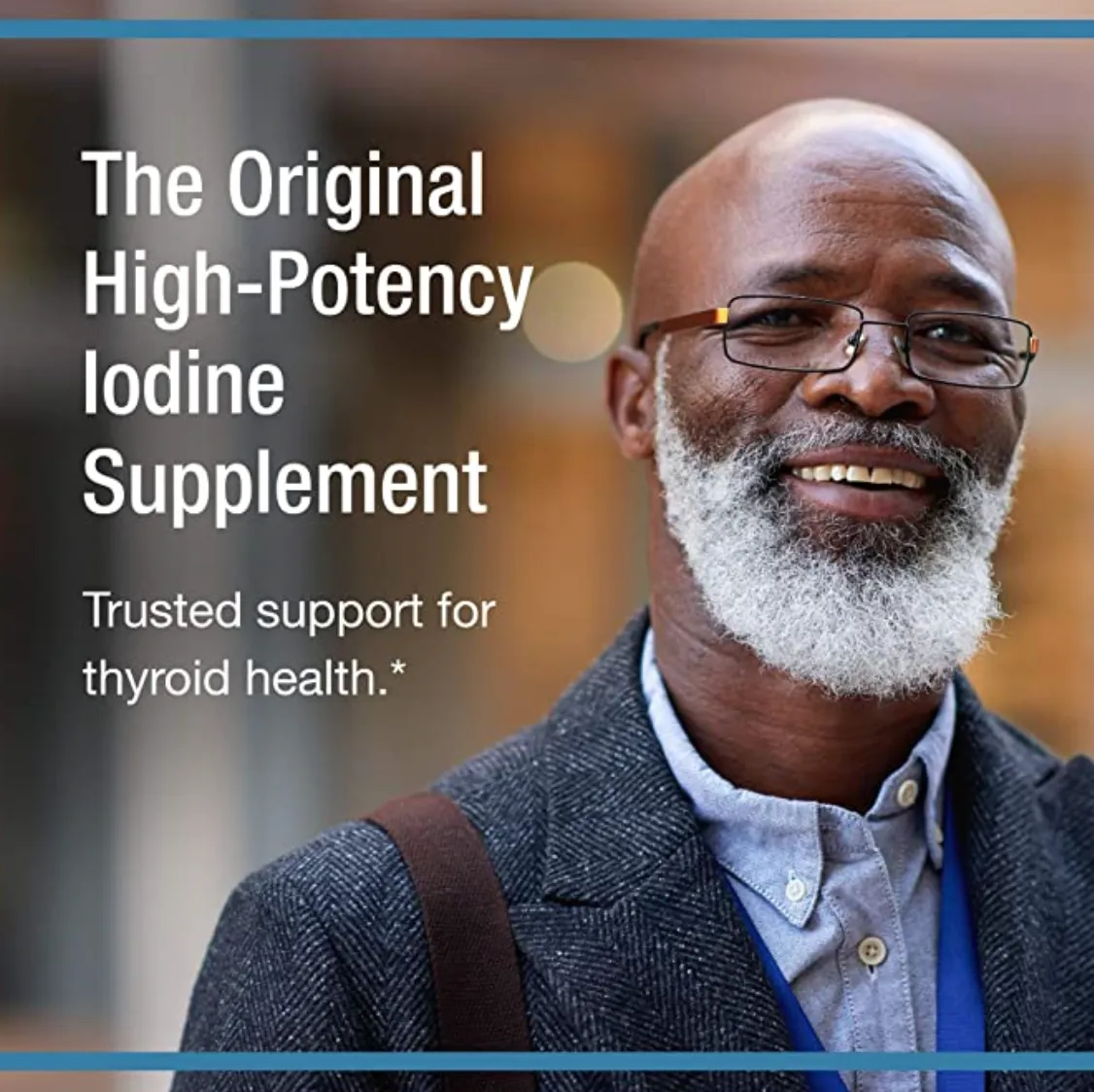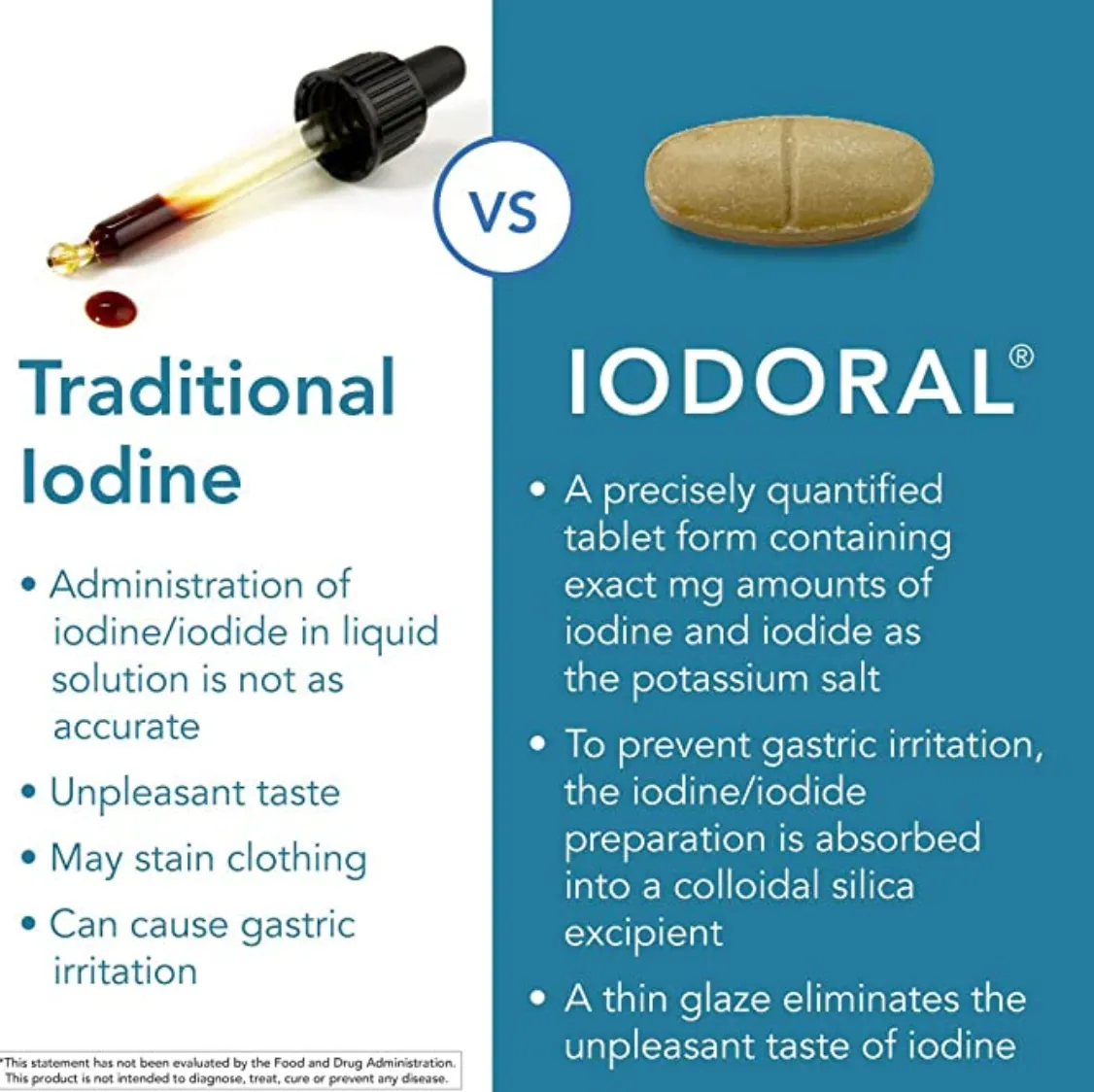The Approved Optimox Iodoral 50 mg Iodine Tablets For Thyroid Protection
Prices pulled from the Amazon Product Advertising API on:
Product prices and availability are accurate as of the date/time indicated and are subject to change. Any price and availability information displayed on [relevant Amazon Site(s), as applicable] at the time of purchase will apply to the purchase of this product.
- Supplement for thyroid support and energy with potassium and no eggs, corn, yeast, or peanuts*
- High potency iodine and potassium supplements for thyroid support and energy
- Gluten free. Free of wheat, corn, soy, yeast, dairy, eggs, fish, shellfish and peanuts
- Many sensitive individuals who typically react to nutritional supplements tolerate Optimox products
- Established in 1978 by Guy Abraham, MD, Optimox brought clinical research to evidence-based nutritional formulas.

Potassium iodide (KI) is a type of iodine that is not radioactive and can be used to help block one type of radioactive material, radioactive iodine (I-131), from being absorbed by the thyroid.In some radiation emergencies, usually nuclear power plant accidents, radioactive iodine may be released into the environment and enter the body through breathing or eating it. This is known as internal contamination. When the thyroid absorbs high levels of radioactive iodine, it can increase the risk of thyroid cancer in infants, children, and young adults many years after exposure. The thyroid is a gland in the neck that plays an important role in many body functions.

How KI Protects the Thyroid
KI and radioactive iodine are both types of iodine. They are both absorbed by the thyroid. For KI to work, a person must take it before or shortly after exposure to radioactive iodine. When a person takes the right amount of KI at the right time, it can help block the thyroid from absorbing radioactive iodine. This happens because the thyroid has already absorbed the KI, and there is no room to absorb the radioactive iodine. Think of filling a jar with blue marbles. If you then pour green marbles over the jar, there will not be room and they will just spill out.
Use KI Only if Instructed
Do not take KI unless you are instructed by public health or emergency response officials or a healthcare provider. KI can cause harmful health effects. KI is helpful only in specific situations for certain groups of people.
KI should be used only as directed.
- Do not use table salt or foods as a substitute for KI. They do not help with radiation poisoning and eating large amounts could be harmful.
- Only use KI products that have been approved by the Food and Drug Administration (FDA). Dietary supplements that contain iodine may not work to protect the thyroid and can hurt you.

How to Take KI
KI is recommended as a medical countermeasure to protect the thyroid from radioactive iodine in people under 40 and pregnant or breastfeeding. This is because cells are still growing and multiplying more quickly in younger populations, so they can be at risk for developing thyroid cancer after breathing in radioactive iodine.
Adults over 40 years old have a much lower risk of developing thyroid cancer and are more likely to have health conditions, like problems with their thyroids, that increase their risks for harmful health effects from KI. However, officials or healthcare providers may instruct adults over 40 to consume KI if the predicted exposure is high enough to cause hypothyroidism.
Breastfeeding people should consider temporarily stopping breastfeeding until evacuated from the impacted area, if possible, and safely feed your baby in other ways. Radioactive iodine can be passed to infants through breast milk.
There are two U.S. FDA-approved forms of KI:
- Tablets in two strengths, 130 milligrams (mg) and 65 mg (The tablets may be cut into smaller pieces for lower doses.)
- Oral liquid solution is available in one concentration, each milliliter (mL) containing 65 mg of KI. The solution comes in a 1 oz (30 ml) bottle with a dropper marked for 1, 0.5, and 0.25 mL dosing. For reference, 5 mL of liquid is one teaspoon. One mL would be about the size of a large drop of water.

